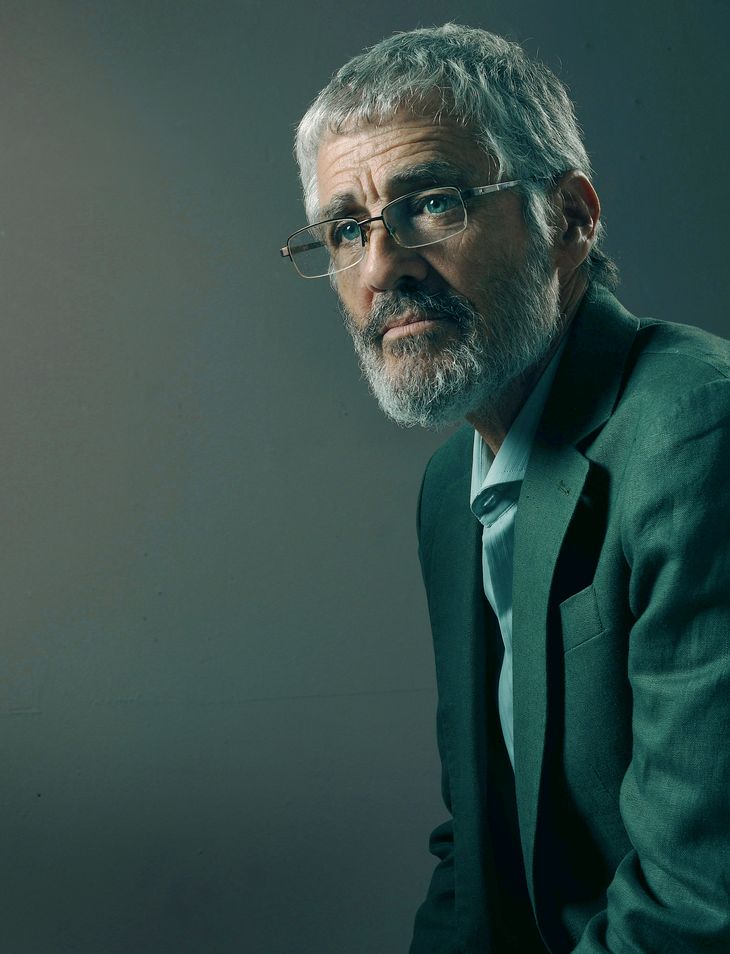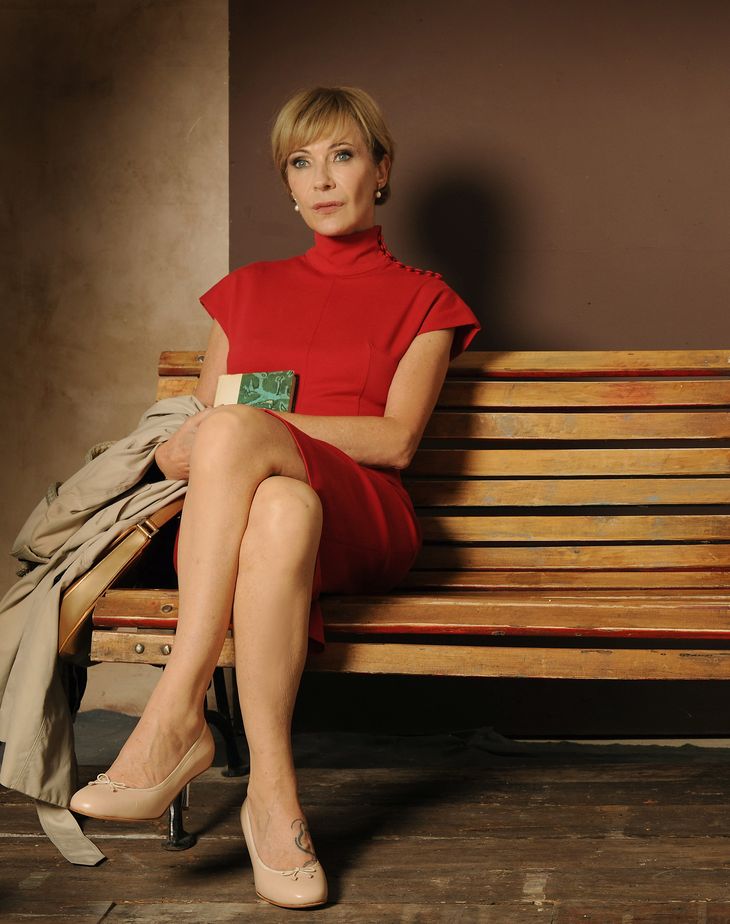“Yasmina Reza wrote a work in which through a seemingly simple anecdote, it is accessed concepts of an unusual intellectual height. His fine humor, his poetry, and conceptually superior to almost everything that usually circulates in the theatrical rooms ”, says Inés Estévez, who next to Germán Palacios Star and co -dire “The unexpected man”, which offers functions at the Maipo Theater.
The work revolves around an unthinkable encounter, two solitudes that coincide in the same train car and whose thoughts fly until they cross. We talked with Estévez and Palacios.
Journalist: Why were you interested in this work?
Inés Estévez: I saw the version that was made many years ago in Buenos Aires and I knew it was a unique material. I was especially so typical of Yasmina, in which through a seemingly simple anecdote, concepts of an unusual intellectual height are accessed. His fine humor, his poetry, and confirm that he is conceptually superior to almost everything that usually circulates in the theatrical rooms.
Germán Palacios: After having interpreted as many years one of his best known works such as “Art”, in addition to a sympathy by the author, whom I know and be on her human side, I wanted to do this work. We were able to chat with Inés with Yasmina and it was an important envy.
DSC_3597C.JPG
Inés Estévez co -direct the work with Germán Palacios.
Q.: The work shores the solitudes that coincide and a dialogue that promises humor and twists, how do they question them?
IE: The themes are universal and common to all, but are distributed with mastery and originality in an unexplored format. The characters are in a stage of life in which one might think that they have everything resolved, and yet they undress yearnings, doubts, searches, desires, with the intensity of two adolescents and the stark charm of those confessions that one only allows itself to be made. The characters are devoid of a filter and that makes them vulnerable and close.
GP: The great themes, life, death, loneliness, love, sex, the passage of time, links appear. All subtle, humorous, suspense. When I read it I felt moved, I had the certainty that it was a material that I wanted to interpret as an actor. I was making various readings over time, letting him decant and that macerated towards a job regarding direction.
Q.: What is attractive to that dialogue on the train trip, reminds me of the couple’s walk and that running in Linklater’s trilogy?
IE: Many cite that trilogy. There is something that turns on when two strangers connect during a journey that lasts what a trip lasts. That finitude accelerates the times, generates a courage and foster audacity that perhaps no one would allow if he knew he has more time to address and meet the other. Things rush into that desperate need to realize what is longed for and transforms the instance into an unforgettable and intense experience.
Q.: How are the characters at the beginning and how is that dramatic arc that leads them to transformation?
IE: He is a man in his thoughts, which revolve around domestic, personal, linked artistic questions. It ranges from prosaic reflections as if taking laxatives, and other absolutely existential ones. He is in crisis and wants changes in his life. She, from the moment she enters that car and discovers that she will travel with the man who admires most, enters an almost teenage concern, through which we discover great intelligence. She is a brilliant woman, who has just lost a very dear friend recently and perhaps that loss drives her to experience everything with courage and without shame.
GP: The arch is very large, within the structure of the trip the spectator travels and participates in his thoughts. Weave a link between them that is done in the air, speaking each one, interwoves and finally ends up interviewing.
Q.: What is it like to address yourself? Why not a look from the outside?
IE: In the process of analyzing the text, which took us for two months of gathering once a week with all versions (Spanish French Spanish and Argentina) and memorizing the lyrics, ideas of colors, colors, tones and textures in acting, music, starting points and approaches were emerging. There came a time when it was going to be complex to move all that to a third person, to whom we were not going to deliver the creative autonomy because we already had almost everything embodied in the head. So German proposed to co -direct it and it was the most fluid and simple that I have lived in many years.
GP: Looking inside and communicating we had to direct it. We did not close to external units, we made trials with friends but we trust in our introspection, which is we continue to function after function. Exciting, novel and much learning.
DSC_3737.jpg

Germán Palacios starred in “Art”, another work by Jasmina Reza.
Q.: How much of this is chance? How much is destiny? What questions are asked?
IE: I think it is a work that gives answers. And the public is a participant in those answers. Each spectator travels with the characters and ends up concluding what he needs to conclude. There is not a single answer, there are as many as spectators in the room. That is the unusual and charming of this great work by Yasmina Praza.
GP: It seems beautiful to me what happens to Inés’ character from the point of view of the vitality that she manifests and her courage. I like to think that she will improve the supposed bitterness of my character, who is reviewing many things. The passage of time does not feel good. Being intelligent, ironic and sarcastic, it seems that everything that says that happens is a bit masked in a particular situation. She, her admirer, seems to know more about him than himself.
Source: Ambito
I am an author and journalist who has worked in the entertainment industry for over a decade. I currently work as a news editor at a major news website, and my focus is on covering the latest trends in entertainment. I also write occasional pieces for other outlets, and have authored two books about the entertainment industry.




